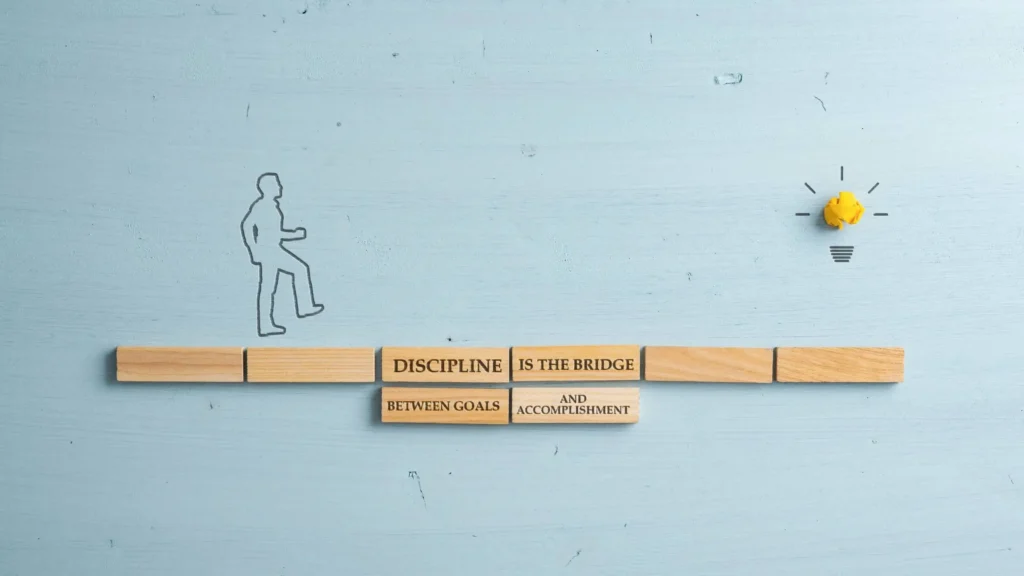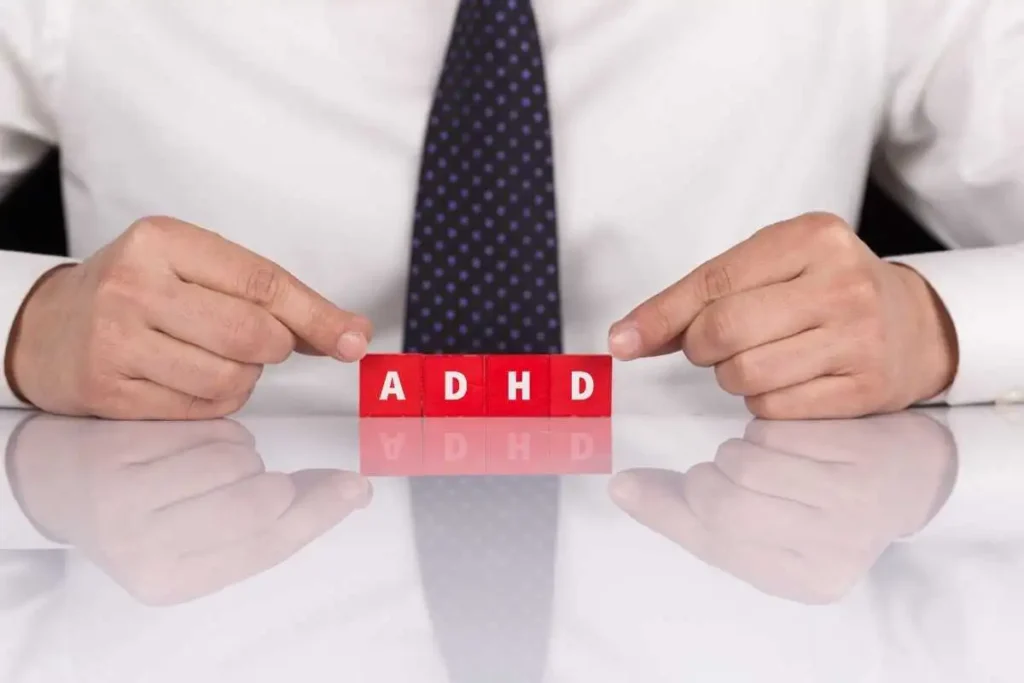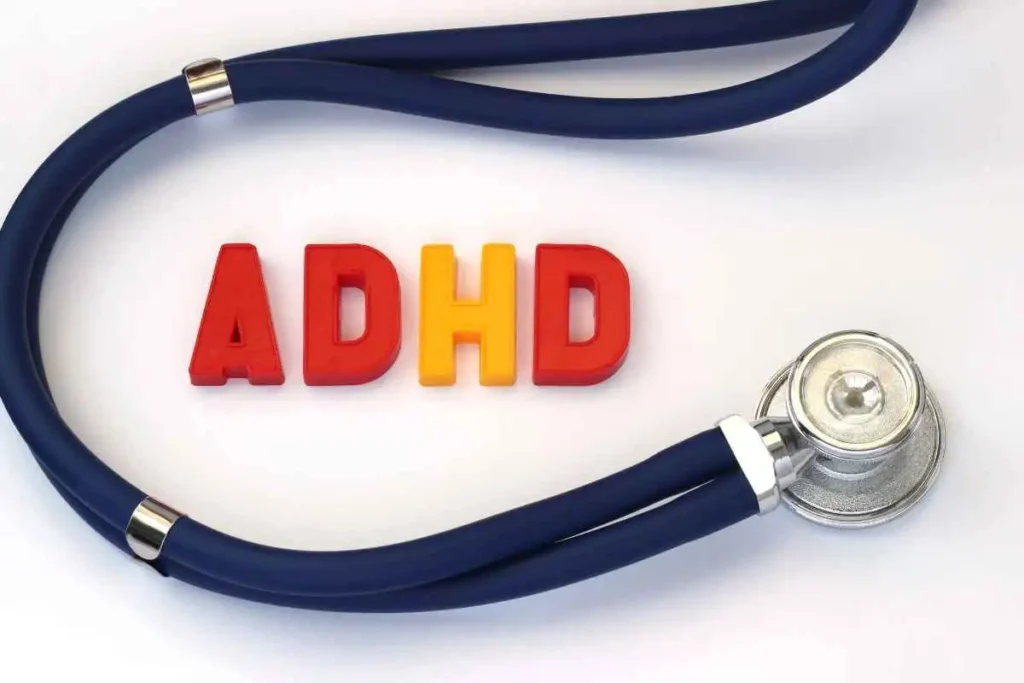Living with ADHD (Attention Deficit Hyperactivity Disorder) can often feel like a constant battle between your goals and the distractions around you. Those with ADHD frequently experience challenges with focus, self-control, and executive functioning, which can make it difficult to harness the power of willpower effectively.
These struggles can lead to feelings of anxiety and frustration as individuals may find it hard to stick to tasks, resist impulses, and build consistent habits.
Mastering willpower is crucial for adults with ADHD as it plays a significant role in achieving personal and professional success. With improved self-discipline, individuals can enhance their self-confidence, manage distractions, and maintain motivation to pursue their goals. Fortunately, there are strategies that can help in developing the willpower needed to thrive.
This article delves into five proven strategies that are specifically designed to empower individuals with ADHD. These techniques include:
- Organizing Your Environment for Success: Learn how a clutter-free space can enhance focus and productivity.
- Mastering Time Management: Discover methods like the Pomodoro Technique to better control your time.
- Implementing Mindfulness Practices: Understand how mindfulness exercises can boost self-control and reduce impulsivity.
- Behavior Modification Techniques: Explore ways to set realistic goals and track your progress effectively.
- Seeking Support and Accountability: Uncover the importance of social support and finding accountability partners to stay on track.
Strategy 1: Organizing Your Environment for Success
A cluttered space can lead to a cluttered mind, especially for individuals with ADHD. Creating a clutter-free environment is a critical step in enhancing focus and boosting your self-discipline.
By reducing distractions and organizing your surroundings, you set the stage for increased productivity and better impulse control. A well-organized environment serves as a powerful foundation for achieving self-control.
Here are some practical tips to help you effectively declutter and organize your spaces:
- Color-Coded Systems: Use different colors to organize files, supplies, and areas. This visual guide makes it easier to locate items and maintain order.
- Designated Areas: Assign specific spots for essential items, ensuring everything has a home. This helps in minimizing distractions and streamlining your focus.
- Regular Clean-Up Schedule: Implement a routine for tidying up. Consistency is key to maintaining a tidy environment.
To further aid in organizing your environment, consider using the following essential tools:
- Planners: Maintain a daily planner to track tasks and appointments. This helps in prioritizing and managing time effectively.
- Timers: Utilize timers to allocate specific periods for tasks, reducing the chances of getting sidetracked.
- Apps: Download organization apps like Todoist or Evernote to help organize tasks and notes digitally.
Strategy 2: Mastering Time Management
Time management is a crucial skill for enhancing self-control, especially for individuals with ADHD. By mastering time management, you can improve your executive function and create a structured approach to daily tasks, helping you maintain focus and achieve your goals.
Effective time management reduces stress and increases productivity, empowering you to take control of your day.
Here are two popular techniques to consider integrating into your routine:
- Pomodoro Technique: This method involves working in focused intervals of 25 minutes, followed by a 5-minute break. It’s designed to enhance concentration and prevent burnout.
- Time Blocking: Allocate specific blocks of time for different activities throughout your day. This technique helps in prioritizing tasks and maintaining a balanced schedule.
The table below compares these time management methods and highlights their benefits:
| Time Management Method | Benefits for ADHD |
|---|---|
| Pomodoro Technique | Improves focus and reduces distractions by breaking tasks into manageable intervals. Encourages regular breaks to maintain energy levels. |
| Time Blocking | Helps in prioritization and ensures a balanced approach to handling various tasks. Reduces the likelihood of procrastination by assigning specific times for activities. |
Experiment with different methods to find what works best for you and adapt them to fit your unique needs. Remember, consistency is key to success!
Strategy 3: Implementing Mindfulness Practices
Mindfulness is the practice of being fully present in the moment, which is directly linked to strengthening willpower and enhancing self-discipline. For individuals with ADHD, mindfulness can serve as a powerful tool to improve impulse control and focus, providing a sense of calm and clarity amidst the chaos.
Here are some mindfulness exercises that can help cultivate discipline:
- Meditation: Set aside a few minutes each day to focus on your breath, allowing thoughts to come and go without judgment. This practice can increase your attention span and reduce stress.
- Breathing Techniques: Simple exercises like deep breathing or the 4-7-8 technique can be practiced anytime to calm the mind and reset your focus.
Consider the personal story of Jessica, a young professional with ADHD, who transformed her life through mindfulness. Initially struggling with executive function disorder, Jessica implemented daily meditation and breathing practices.
Over time, she noticed a significant improvement in her ability to concentrate and manage her impulses. She shares, “Mindfulness has given me the tools to pause and reflect, rather than react impulsively.” Her journey exemplifies how mindfulness can be an effective strategy for enhancing self-control and fostering a more disciplined lifestyle.
It’s about progress, not perfection. Start small, stay consistent, and watch as your self-discipline grows.
Strategy 4: Behavior Modification Techniques
Behavior modification is a powerful strategy that can play a crucial role in enhancing self-discipline for individuals with ADHD. B
y systematically changing your response to certain stimuli or situations, you can increase your impulse control and develop better habits. This technique is often used in cognitive-behavioral therapy and can be highly effective for managing ADHD symptoms.
Here’s a step-by-step guide on how to set achievable goals and track your progress:
- Identify Specific Goals: Start by defining clear, realistic goals that you wish to achieve. Ensure they are measurable and time-bound.
- Break Down Tasks: Divide your goals into smaller, manageable tasks that can be accomplished incrementally.
- Create a Tracking System: Use planners, apps, or simple charts to monitor your progress regularly. Seeing your achievements can boost motivation and reinforce positive behavior.
- Adjust and Reflect: Regularly evaluate your progress and make necessary adjustments to your strategies. Reflection helps in understanding what works best for you.
To reinforce positive behavior, consider these common rewards and incentives:
- Personal Treats: Allow yourself a small reward, such as a favorite snack or a leisure activity, after completing a task.
- Social Activities: Spend time with friends or family as a reward for achieving your weekly goals.
- Incentive Programs: Set up a points system that accumulates towards a bigger reward, like a weekend trip or a new gadget.
Behavior modification helps in creating a support system that encourages consistency and structure. By embracing these techniques, you can gradually build a disciplined lifestyle that aligns with your personal aspirations and milestones.
Strategy 5: Seeking Support and Accountability
Building a strong support system is essential for maintaining willpower and enhancing self-discipline, especially for individuals with ADHD. Social support provides encouragement, inspiration, and practical tips, helping you stay on track and overcome challenges.
Engaging with others who understand your journey can significantly boost your motivation and impulse control.
Here are some effective ways to find accountability partners:
- Join Support Groups: CHADD (Children and Adults with Attention-Deficit/Hyperactivity Disorder) offers numerous resources, including support groups that connect you with peers who share similar experiences.
- Leverage Social Media: Online communities and forums can provide a platform for sharing insights, asking questions, and finding accountability partners.
- Engage Friends and Family: Trusted friends and family members can offer support and act as accountability partners, keeping you motivated and focused.
- Hire a Coach or Mentor: Professional help from a coach or mentor can provide personalized guidance and strategies tailored to your needs.
To address some common questions about seeking support for ADHD, here is a brief FAQ section:
| Question | Answer |
|---|---|
| How can therapy help? | Therapy, such as cognitive-behavioral therapy, can provide strategies to improve self-discipline and manage ADHD symptoms effectively. |
| What should I look for in a support group? | Seek groups that offer positive reinforcement, shared experiences, and practical strategies for managing ADHD. |
| How do I choose a mentor? | Select a mentor who understands ADHD challenges and can provide tailored advice and accountability. |
Embracing the power of community and support can transform your ADHD journey, providing the structure and consistency needed to thrive. Yu are not alone, and reaching out for help is a courageous step towards mastering self-discipline.
Conclusion
As we reach the end of this guide on enhancing self-discipline with ADHD, let’s recap the five transformative strategies we’ve explored:
- Organizing Your Environment: Create clutter-free spaces to enhance focus and productivity.
- Mastering Time Management: Implement techniques like the Pomodoro Technique to optimize time and boost self-control.
- Implementing Mindfulness Practices: Engage in mindfulness exercises such as meditation to improve impulse control and enhance self-awareness.
- Behavior Modification Techniques: Set achievable goals and use positive reinforcement to cultivate discipline.
- Seeking Support and Accountability: Build a robust support system through groups, mentors, and friends to maintain motivation and consistency.
“The journey of a thousand miles begins with one step.” – Lao Tzu
This journey to improved willpower is your own, and every step forward is a testament to your strength and determination. Embrace each moment and celebrate your progress as you move towards greater self-discipline and success.
Additional Resources
Embarking on the journey to cultivate self-discipline with ADHD can be greatly supported by diving into a wealth of resources that offer insights and strategies. Below is a curated list of books, websites, and tools that can enhance your understanding and provide ongoing support:
Books
- Delivered from Distraction by Edward M. Hallowell and John J. Ratey
- The Mindfulness Prescription for Adult ADHD by Lidia Zylowska
Websites:
- CHADD (Children and Adults with Attention-Deficit/Hyperactivity Disorder) – A leading resource for ADHD education and support.
- ADDitude Magazine – Offers expert advice and resources for managing ADHD.
Tools:
- Todoist – A task manager that helps organize tasks and boost productivity.
- Headspace – An app that provides guided meditation to help with mindfulness and stress management.
We invite you to share your experiences and tips in the comments section below. Your insights can offer inspiration and guidance to others on a similar path. Together, we can create a community of empowerment and support.







